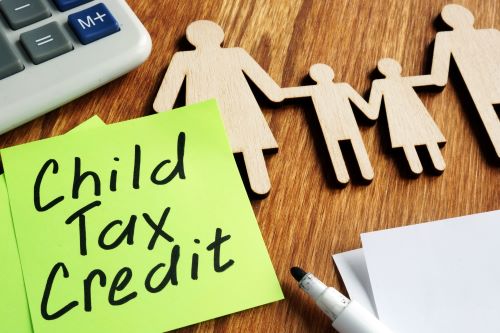What you need to know about expanded child tax credits – the next phase of COVID-19 relief
 The latest part of the federal government’s COVID-19 relief entails increasing the annual tax credit per child – allowing qualifying families to receive an additional $250 or $300 per month, per child from mid-July through the end of the year.
The latest part of the federal government’s COVID-19 relief entails increasing the annual tax credit per child – allowing qualifying families to receive an additional $250 or $300 per month, per child from mid-July through the end of the year.
Families that qualified for the child tax credit after filing their 2019 or 2020 tax return – or who used the IRS Non-Filers tool last year to register for the direct Economic Impact Payment checks -- will automatically receive the advanced child tax credit payments.
- Families that have not yet filed with the IRS or Treasury – or are unsure if they qualify – can apply for the child care credit as well as any Economic Impact Payments they missed by going to the Non-Filers page here
- After filling out the information, the IRS will determine eligibility.
- To use the online tool, you will need:
- Current mailing address
- Email address
- Date of birth
- Valid Social Security numbers (or other taxpayer IDs) for you and your dependents
- Bank account number, type, and routing number, if you have one
- Identity Protection Personal Identification Number (IP PIN) you received from the IRS earlier this year if you have one
Overall, individuals with an adjusted gross income of $75,000 or less (or couples who make $150,000 or less) will get the total amount of the enhanced child tax credit. After that, the credit begins to phase out by $50 for every $1,000 of income over the threshold.
The following are more details about the child tax credit program, which is part of the American Rescue Plan Act passed in March.
What has changed?
For 2021, the Child Tax Credit was expanded from $2,000 per year per child to $3,600 for children ages five and under at the end of 2021; and $3,000 for children ages six through 17.
The increased payments will come in the form of an advance on the increased credit and will arrive on the 15th of each month, starting in July and ending in December. Eligible families will receive a payment of up to $300 per month for each child under age 6, and up to $250 per month for each child ages 6 through 17.
This month, families already qualified will receive IRS Letter 6417 detailing the amount of your estimated Child Tax Credit monthly payments and additional information about the program. But, again, if you believe you are eligible and do not receive the letter or a payment by mid-July, visit the IRS Non-Filers page.
Note: These extra benefits are not taxable and will not count against other assistance programs for which families or children may qualify.
General rules about eligibility
Those who qualify, according to the IRS, must have:
- Filed a 2019 or 2020 tax return and claimed the Child Tax Credit on the return; or
- Given us your information in 2020 to receive the Economic Impact Payment using the Non-Filers: Enter Payment Info Here tool; and
- A main home in the United States for more than half the year (the 50 states and the District of Columbia) or file a joint return with a spouse who has a main home in the United States for more than half the year; and
- A qualifying child who is under age 18 at the end of 2021 and who has a valid Social Security number; and
- Made less than certain income limits.
2021 changes and opting out
Families have experienced a lot of changes since 2019. Through the IRS Child Tax Credit Update Portal, families will be able to:
- Update your mailing address
- Update your bank account information
- Add or subtract the number of your qualifying children, including by reason of the birth or adoption of a child
- Report a change in your marital status
- Report a change in your income
- Unenroll from receiving advance Child Tax Credit payments*
*In a future article, we will review scenarios where families should consider opting out of receiving advance Child Tax Credit payments.
Bottom line
This latest round of targeted COVID-19 help was designed to assist families with children struggling because of the economic upheaval caused by the pandemic. For more information, please visit the IRS Advance Child Tax Credit Payments in 2021 site here.
Benjamin R. Bostic, CPA, is a director at Boyer & Ritter with experience providing tax and accounting services for closely-held businesses, individuals, not-for-profit organizations. Reach Ben at 717-264-7456 or bbostic@cpabr.com



